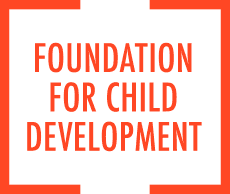https://www.fcd-us.org/research-evidence-for-social-justice/
In 1965, the Reverend Dr. Martin Luther King, Jr. told a crowd in Selma, Alabama that the waiting time for social justice should not be long because “no lie can live forever.” On January 6, 2021, the act of insurrection at the U.S. Capitol, demonstrated that as long as a lie lives, no one is free — not even the men and women of the U.S. Congress. President Biden’s inauguration provides hope that America will reembrace its ideals and affirm its commitment to the truth after a period of sustained assault on science and facts. During his inaugural address, President Biden encouraged the nation to “reject a culture in which facts themselves are manipulated and even manufactured.” The Foundation for Child Development (the Foundation) is committed to seizing this opportunity by using research to establish facts and advance solutions that bring justice to all.
For over 120 years, the Foundation has worked to harness the power of research to ensure that all children have early experiences and interactions that can lead to healthy learning and development. Decades of science have illuminated the hard truths about the inequitable care and education of children of color and the dire effects of racism, prejudice, and discrimination on society. Research has also identified prescriptions for healing through equitable access to quality early childhood services.
Yet, our country is slow to act on the facts. Prior to the devastating economic impact of the COVID-19 pandemic, at least 14% of American children were living in poverty (U.S. Census Bureau, 2019) with little or limited access to high-quality early learning and care that could change their life trajectories from the poverty of American determinism to the opportunity of the American ideal.
For over 40 years, researchers have also collected a solid body of evidence on the status of early childhood professionals who are a critical factor in the care and education of young children. We have long known that nearly half of this workforce is paid poverty-level wages that must often be supplemented by public assistance, and 40% are women of color who typically earn less than their peers (Center for the Study of Child Care Employment, 2018). Little has changed in their predicament.
Dr. King also told that same Selma crowd that they should not wait long for justice because “the arc of the moral universe is long, but it bends toward justice.” The trajectory of that arc needs active support and guidance from research if it is to lead toward social justice.
Little will change for young children, their families, and the professionals who support them unless we have the courage to change how we create change through research. Simply generating research facts is insufficient. We have seen that attempts to fact-check a lie that has spread broadly can fail miserably.
Facts must be made relevant and understandable to the public, policymakers, and practitioners, and they must tell as complete a story as possible. Working through the concept of a study, applied researchers need to consider how their questions, methodological approaches, and interpretations are designed to reveal facts, add to an understanding of context, and lift up the social justice issues that have long plagued our field.
We must also be much better at unifying around science and acting upon it, even if the truth hurts before it heals. Although it can be painful, when those facts do not support the story we wish to tell, we must have the courage to ask even harder questions in a search for the truth and all its nuance.
The Foundation is committed to accomplishing great change by empowering investigation and innovative research; informing advocates and holding them accountable to the evidence; and, fostering better relationships between researchers who build knowledge and policymakers who can and should apply it. This can be seen in our work to advance the New York City Early Childhood Research Network to continuously improve New York City’s implementation of universal preschool, as well as our publication, Getting it Right: Using Implementation Research to Improve Outcomes in Early Care and Education. We will continue to illuminate truths and pathways to solutions through the grants we make, the relationships we have with grantees, and the partnerships we form with other funders.
We look forward to working collaboratively to put facts into action, to create a better future for all children - a future that is grounded in what research shows is necessary and possible if we have the courage to bend the moral arc toward justice.
